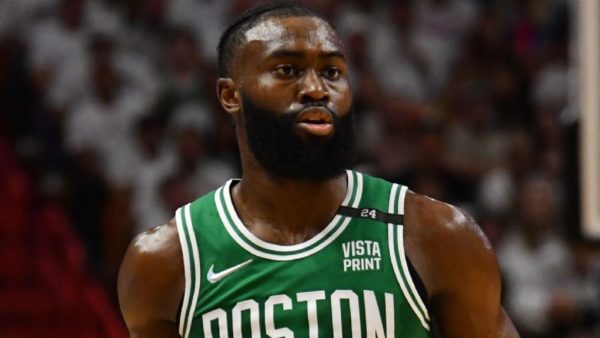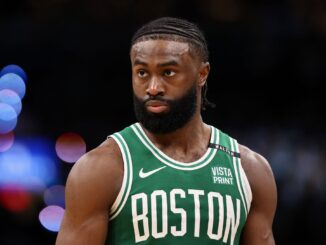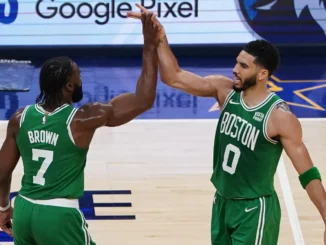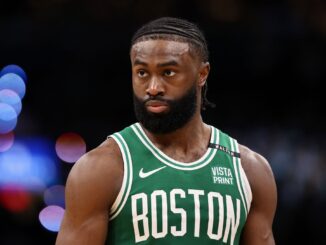
Jaylen Brown calls out Grant Hill over ‘conspiracy theory’ comment
In a recent exchange that has sparked significant attention, Boston Celtics star Jaylen Brown publicly challenged NBA legend Grant Hill over comments Hill made regarding a “conspiracy theory” related to the league. The exchange has ignited a broader discussion about player empowerment and league dynamics.
The controversy began when Hill, during an interview on a popular sports network, suggested that certain player movements and decisions in the NBA were influenced by what he described as “conspiracy theories.” Hill’s comments implied that some player trades and team strategies might be part of a larger, orchestrated effort behind the scenes.
Brown, known for his outspoken nature and advocacy on various social issues, took exception to Hill’s remarks. In a series of posts on social media, Brown criticized Hill for what he perceived as an unfounded and damaging claim. “Grant Hill’s comments were not only inaccurate but also dismissive of the real challenges and decisions that players face,” Brown wrote. “Suggesting there’s a conspiracy behind our decisions undermines the hard work and genuine choices made by players and teams.”
Brown’s response reflects a growing trend of players voicing their opinions and pushing back against traditional narratives within the NBA. His reaction is also indicative of the broader conversation about the transparency of player movements and the complexities involved in team management.
Hill, who has been a respected figure in the NBA community for decades, responded to Brown’s criticism in a follow-up interview. “I respect Jaylen Brown and his perspective, but my comments were not meant to belittle the hard work of players. It was more about observing how sometimes events unfold in unexpected ways,” Hill clarified. He emphasized that his intention was not to suggest that players are manipulated, but rather to point out the complexities of league dynamics.
The exchange has sparked debate among fans and analysts about the nature of player empowerment and the role of former players as commentators. Some argue that Hill’s comments reflect a misunderstanding of current player agency, while others believe that discussions about league strategies and decision-making are valid topics of conversation.
Brown’s reaction highlights a broader trend of current players asserting their perspectives and challenging traditional viewpoints within the NBA. His response has been widely supported by peers who agree that player decisions are often misunderstood or oversimplified by outside commentators.
As the discussion continues, both Hill and Brown’s comments are likely to remain topics of conversation within the NBA community. The dialogue underscores the evolving nature of player involvement and the ongoing debate about the intersection of player agency, media commentary, and league operations.



Be the first to comment